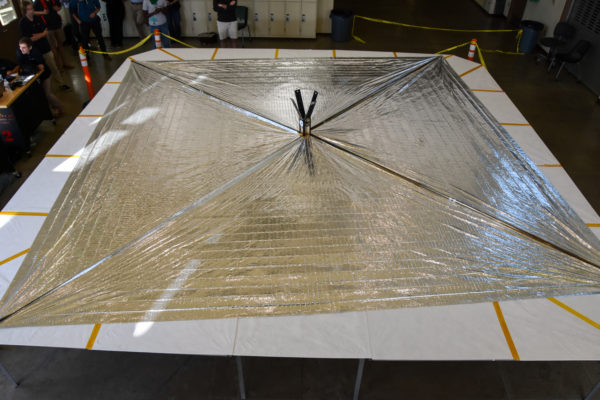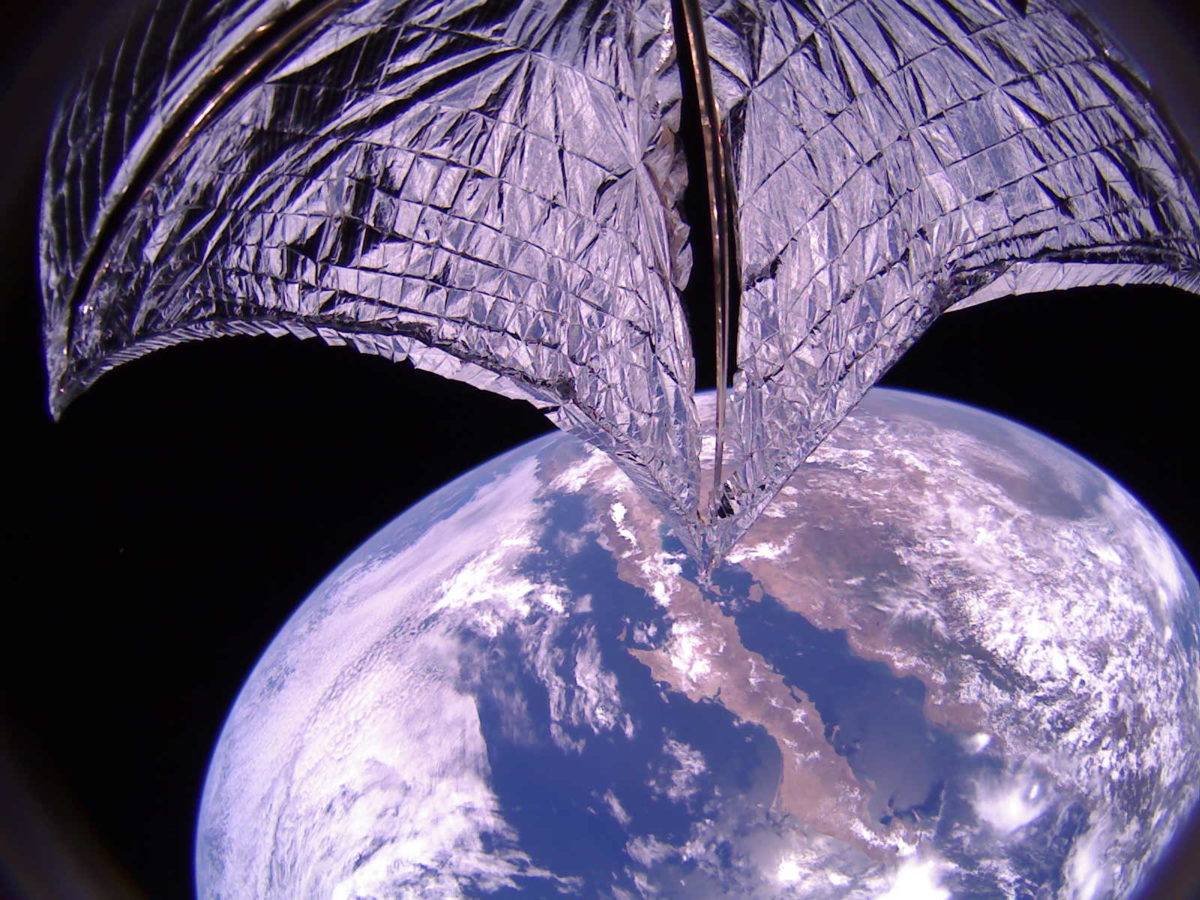The Lightsail 2 mission, a crowdfunded project developed by the U.S.-based Planetary Society, has successfully deployed its solar sail, and sent back dramatic photos from its position in lower-earth orbit.
The solar sail uses sunlight for propulsion: rather than absorbing photons to generate electricity, the light particles are reflected by the boxing ring sized sail, and their momentum is used to push the bread loaf sized satellite through the vacuum of space.
The sail began its journey to space in June 2019, and late last week the first photos of it fully deployed were published by the planetary society. “The successful deployment of the solar sail and the onset of sail control completes our critical post-launch phase,” said LightSail 2 project manager David Spencer. “Now we are prepared for the solar sail's mission, to track how the orbit changes and evaluate solar sailing performance.”

Image: The Planetary Society
Satellite data is showing it turning its sail toward the sun once per orbit, which gives a very slight push to raise its orbit. The Planetary Society has high hopes for solar sails to be used to propel future space exploration missions, saying that with small amounts of continuous thrust, they are ultimately able to reach higher speeds than chemical powered rockets. The technology could already be viable for use with Cubesats – a small, standardized type of satellite.
The society also notes, however, that the push provided by the sail is “no stronger than the weight of a paperclip.” It will take around one year before the satellite is expected to reenter Earth’s atmosphere.
The Lightsail 2 project was funded with $7 million between March 2009 and March 2019. A 2015 kickstarter campaign raised $1.24 million, and further funding was provided by Planetery Society members and private citizens.
This content is protected by copyright and may not be reused. If you want to cooperate with us and would like to reuse some of our content, please contact: editors@pv-magazine.com.




By submitting this form you agree to pv magazine using your data for the purposes of publishing your comment.
Your personal data will only be disclosed or otherwise transmitted to third parties for the purposes of spam filtering or if this is necessary for technical maintenance of the website. Any other transfer to third parties will not take place unless this is justified on the basis of applicable data protection regulations or if pv magazine is legally obliged to do so.
You may revoke this consent at any time with effect for the future, in which case your personal data will be deleted immediately. Otherwise, your data will be deleted if pv magazine has processed your request or the purpose of data storage is fulfilled.
Further information on data privacy can be found in our Data Protection Policy.